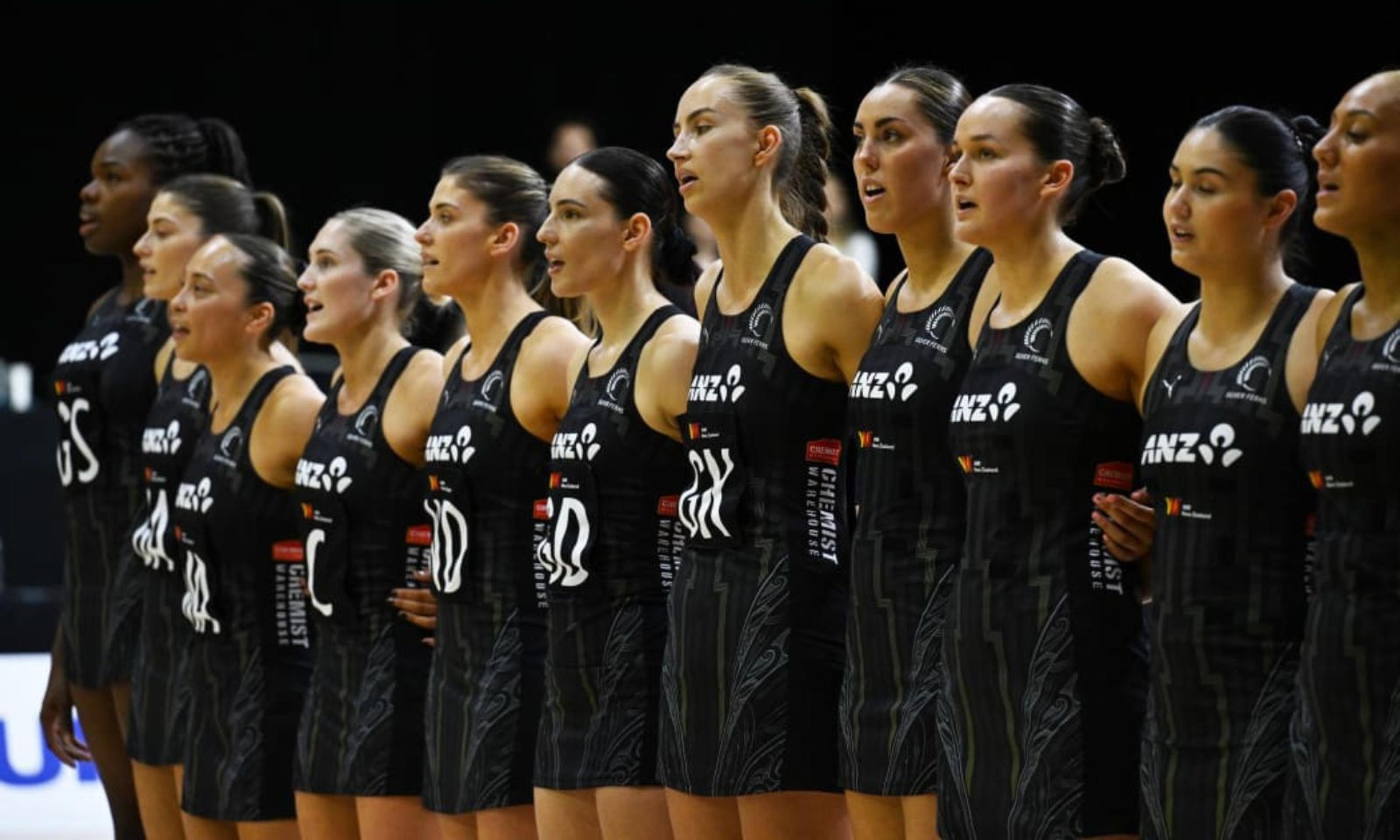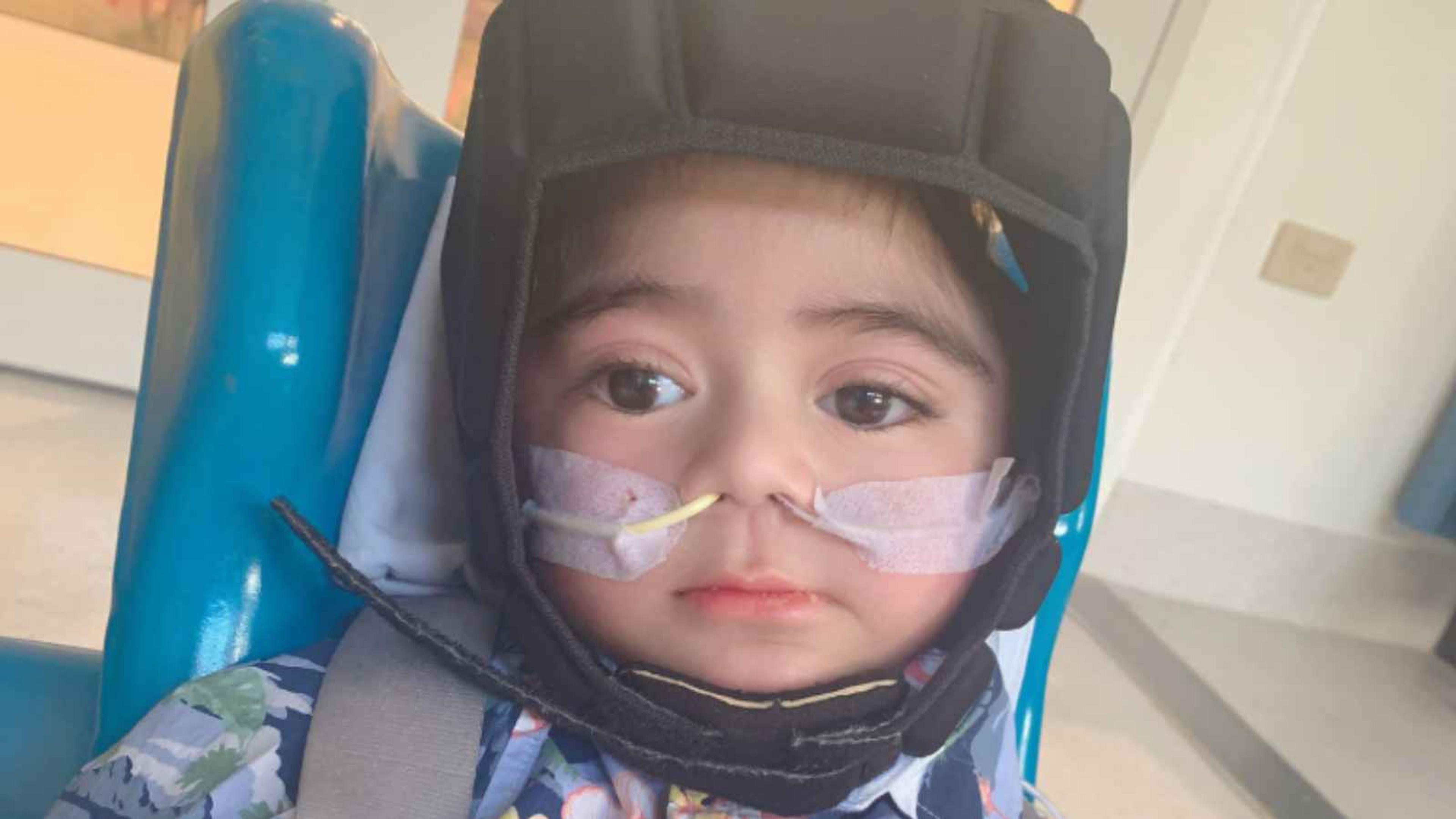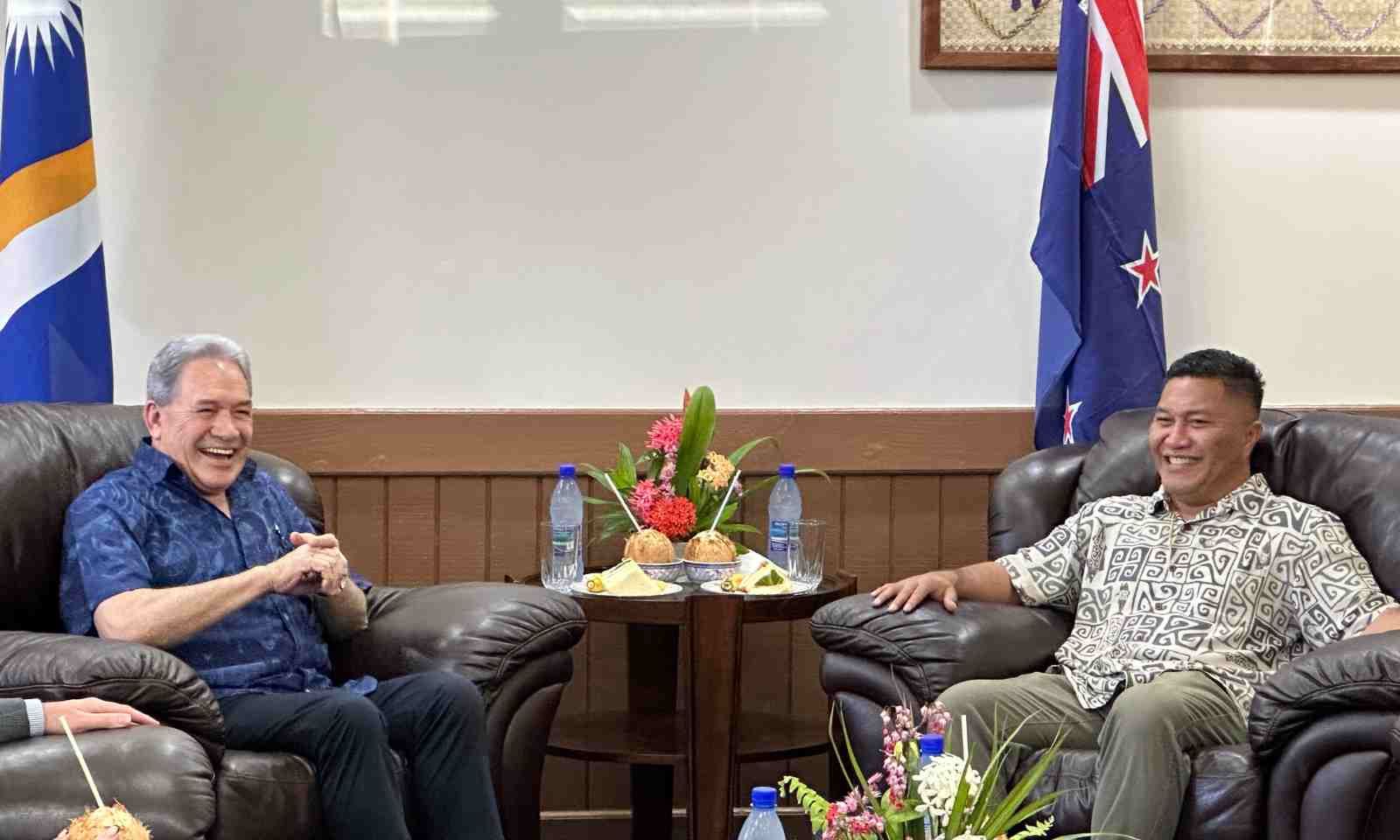

Marshall Islands President Dr Hilda Heine and Deputy Prime Minister Vaovasamanaia Winston Peters in Majuro.
Photo/Ala Vailala
‘We’ve got to spend more time in the Pacific’
New Zealand's Deputy Prime Minister Vaovasamanaia Winston Peters continues to set the tone for the coalition government's Pacific engagement.


Fiji’s former Prime Minister and police chief charged with inciting mutiny

Immigration reassesses toddler's declined visa request as Children's Commissioner steps in



Fiji’s former Prime Minister and police chief charged with inciting mutiny

Immigration reassesses toddler's declined visa request as Children's Commissioner steps in

New Zealand has an important role to play in keeping the Pacific region on a peaceful pathway, Deputy Prime Minister Vaovasamanaia Winston Peters says.
He said the coalition government is deeply committed to the Pacific and to ensuring Aotearoa has the connections and relationships to help the region succeed.
Peters is on a four-nation tour of Fiji, Marshall Islands, Palau and the Federated States of Micronesia this week.
It’s been 17 years since Peters last visited the Marshall Islands, something New Zealand’s top diplomat says he hopes will change due to his major focus on the Pacific region as Foreign Affairs Minister.
Watch
He arrived in Majuro from Fiji on Sunday after attending the Pacific Foreign Ministers Meeting in Suva last week.
This is Peters’ fifth tour of the Pacific since December, with his aim to visit all 17 other members of the Pacific Islands Forum this year. The Marshall Islands is the 14th PIF nation he has visited.
“We’ve got to spend much more time in the Pacific,” Peters said.
“This is a very important visit because it signals the post-Covid reconnection and also to ensure that programmes that we announced like today are seriously helpful and meaningful, and upping the performance of the civil service is what we're trying to do, both in our country and around the Pacific, where we can possibly help.”
Peters announced a $6.2 million investment in a project aimed at helping the Marshallese better prepare and adapt to risks relating to natural disasters and climate change.
“The Marshall Islands, as a nation of low-lying atolls and islands, is at the forefront of natural disasters and the impacts of climate change, and our support reflects that.”
Peters met with Marshalls’ President Dr Hilda Heine and reaffirmed the strong diplomatic ties between the two nations.
“We’ve been waiting for this trip for a long time, so we’re really happy that it’s finally here.
“For the Marshall Islands, New Zealand has been a critical partner in our quest for support to our climate change issues.”

Deputy Prime Minister Vaovasamanaia Winston Peters and Marshall Islands Foreign Minister Kalani Kaneko. Photo/Ala Vailala
Marshall Islands also receives support from the United States as part of the Compact of Free Association Agreement (COFA) which provides funding packages for Palau and the Federated States of Micronesia too.
COFA provides free visa-free residential and employment rights, economic assistance and other support to the nations, in return for exclusive US military access to large and strategic areas of the Pacific.
After much delay, the agreements were signed into law in March by President Joe Biden.
Heine said the funding totalled $2.3 billion over 20 years, and “a good start”.
“Funding has been flowing under the compact. We still have a number of issues that we're trying to work out,” she said.
“That has to do with our federal programme and services, so this is one outstanding agreement that we're still trying to work out.
“For the most part, the agreement is being fully implemented, and this is the first year of our funding under that agreement.
“We're having to develop our annual implementation plan, as well as submitting our plan for next year.
“We were not sure when it would come, so, of course, we were a little bit nervous there, but so far things have worked out.”
Peters and his cross-party delegation head to the Federated States of Micronesia next and then to Palau before heading home on Thursday.

Vaovasamanaia Winston Peters and his cross-party delegation visit the Marshall Islands Parliament (Nitijela) accompanied by Marshallese MPs. Photo/Ala Vailala